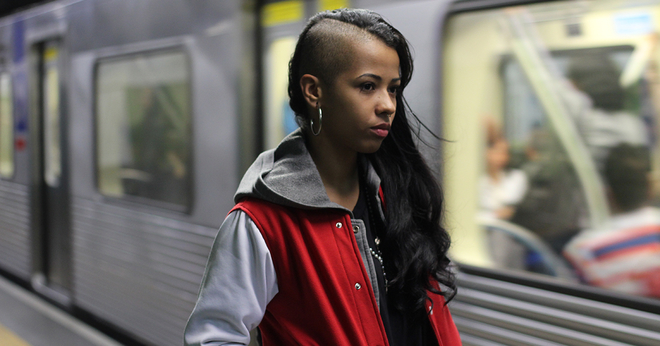Video series aims to change the narrative about tobacco in the African-American community
On a hot summer day in Durham, N.C., Justin Reid sat down at a cookout with his friend, a 29-year-old chef who owns several businesses and is well-known in his community. They talked about life, entrepreneurship and the role of flavors—not only in food, but in tobacco products targeted to people who look like them.
Their chat is captured in the first episode of a web series that Reid hopes will spark new conversations among African-Americans, a population that smokes menthol-flavored cigarettes at much higher rates. The GOAT Series, which stands for Getting Out All Truth, is a multimedia project that originated with the 2016-17 Youth Activism Fellowship, an annual Truth Initiative® program for youth and young adults.
One of the program’s requirements is that participants, called fellows, develop and execute local tobacco-control projects. Reid’s project explores the intersection of the African-American community and the tobacco industry to create new narratives about smoking. Watch the first episode below.
Reid chose this project based on his personal experiences with tobacco industry marketing. "Growing up, my mother had a subscription to both Ebony and Jet magazine, and I remember the cigarette ads in the magazines," said Reid, a North Carolina Central University graduate with a bachelor's degree in political science. "It was always just cool black people—maybe hanging out in a room, all laughing—but they all had cigarettes, and that's definitely a dangerous narrative when the only word on the picture is 'pleasure.'"
Reid is referring to Newport ads for menthols. Research has found these ads often appear in magazines targeting African-Americans and younger consumers, and focus on "themes of sociability and sexuality."

Tobacco companies have profiled African-Americans and strategically marketed their products to appeal to that community for decades, including placing advertising in predominantly black neighborhoods and in publications that are popular with black audiences.
The marketing is so pervasive, that a 2013 study found that black children were three times more likely to recognize advertisements for Newport than other children. A 2011 review concluded that Ebony magazine was almost 10 times more likely than People magazine to contain an advertisement for menthol cigarettes. Even more, research has shown that there are up to 10 times more tobacco ads in black neighborhoods than in other neighborhoods.
Reid also realized that tobacco marketing varies based on where you live. Originally from Boston, he recalls how "being in the projects and walking down the street to the corner store, there's literally a block full of tobacco advertisements of all different colors that look just like the snacks that we were buying at the store." However, he said that in the predominantly white district where he went to school—outside the city of Boston—he would never see tobacco advertisements.
"It wasn’t until later that I became aware of seeing how the tobacco advertisements were very targeted—who they wanted to smoke and where they wanted their advertisements to be—and it’s become something that I've internalized," Reid said. "You really have to look at how one side is pushing the narrative and not only combat it, but combat it better than they’re pushing it."
The GOAT Series will have two episodes that will be hosted on GoatSeries.co. The second episode will focus on point of sale (where tobacco products are sold and how they are strategically placed).
After completing his project, Reid's work continues in the fall with the next group of fellows in the 2017-18 class. He will serve as an alumni mentor by leading training sessions and providing project planning assistance. He gives credit to the fellowship for helping him grow professionally and personally, and pushing him to expand his limits.
"One of my four principles is that 'You can be only what you experience,' and the fellowship afforded the opportunity for me to not just see it, but experience it," Reid said. "The day that I tapped into [work in tobacco prevention], I tapped into something that was part of what I was put on earth to do."
More in targeted communities
Want support quitting? Join EX Program
By clicking JOIN, you agree to the Terms, Text Message Terms and Privacy Policy.
Msg&Data rates may apply; msgs are automated.


